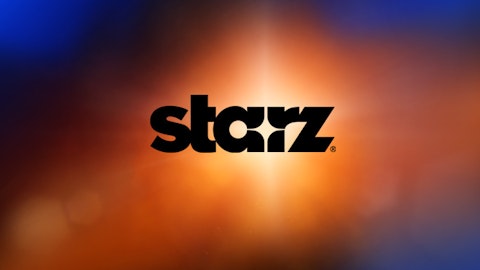
Source: Steve Paluch, via Wikimedia Commons.
Since 1992, my family has held season tickets for the Milwaukee Brewers. In this state, you bleed green and gold for the Packers, and you spend your summers hoping for a good baseball season. Ryan Braun delivered those seasons for us.
So, embarrassed as it makes me to admit it, I was certain that Major League Baseball had wronged Braun for accusing him of taking steroids. “No one could so passionately deny allegations if they were truly guilty!” I told my friends.
In the end though, naive folks like myself are the ones with egg on our faces. Braun was suspended for the rest of the 2013 season, admitting yesterday that he had “made some mistakes,” without actually going into specifics.
Though I think I’ll recover soon enough, situations like this remind me that if there’s one commodity that can be a gold-standard differentiator, it’s trust. And so Ryan Braun’s fall from grace offers important lessons on trust that the business world would do well to take note of.
Trust gone awry
The funny thing about trust is that once you earn it, you can make mistakes, and still retain it. We humans so badly want to be able to trust those around us that we’re willing to give second chances.
Perhaps no company is a better example of this than Netflix, Inc. (NASDAQ:NFLX) . Before the summer of 2011, Netflix, Inc. (NASDAQ:NFLX)’s customer loyalty was through the roof.
Then, the company decided to raise prices by 60% without acknowledging that it was a big deal. This was followed shortly thereafter by the embarrassing Qwikster fiasco. Subscribers left in droves, and the stock absolutely plunged.
But fast-forward two years, and subscriber counts are higher than they’ve ever been, and the stock has recovered quite nicely.
How was Netflix, Inc. (NASDAQ:NFLX) able to do that?
Beyond the fact that it is executing its core business plans and has started making original content, CEO Reed Hastings openly admitted to his mistakes, and went about fixing them. But Hastings also didn’t commit the most grievous sin of them all.
Break this rule, and there’s no going back
There’s one rule about trust that can never be broken without abandoning hope of forgiveness: You cannot, under any circumstances, lie about the mistakes you’ve made. If you’re ever found out, you’re done.
Lance Armstrong is the poster boy for this in athletics, but in the financial world, I think there’s an even more sinister villain: Bernie Madoff.
Anyone who takes the time to really delve into Madoff’s story might be surprised by what they find. His Ponzi scheme wasn’t actually set up to financially benefit himself. It was, instead, the product of one mistake, compounded exponentially by millions of lies.
Madoff started investing money — mostly from family and friends — because he thought he’d be good at it. Allegedly, things were going just fine until 1987, when he started running out of arbitrage opportunities. When the market crashed and folks started calling for their cash, Madoff began falsifying his returns.
Back then, the assets he was handling weren’t that big. But once word got out that Madoff could spin a profit, even in down times, billions of dollars were handed over.
Had Madoff come clean back in 1987, his investors might have been angry that he had a down year, but eventually, they would’ve gotten over it. Instead, Madoff began lying… and lying… and lying, until the lie could no longer be kept secret. Exploiting others’ trust like that is as close to unforgivable as you get in finance.
Companies that get it
Fortunately, there are companies and leaders out there that understand the importance of immediately owning up to mistakes.
Johnson & Johnson (NYSE:JNJ) is one of the most trusted brands in medicine. That might not be the case if the company hadn’t quickly pulled Tylenol off the shelf in 1982 when seven people died after ingesting cyanide-laced pills.
Even today, Johnson & Johnson (NYSE:JNJ) deals with recall issues. The company has been forced to recall 40 different products since 2009. These incidents cost the company billions of dollars, but there’s no price you can put on trust. While recalls force a momentary hiccup in revenue, a loss of consumer trust would be a deathblow for Johnson & Johnson (NYSE:JNJ).
Or take a look at Warren Buffett. When he announced that David Sokol would no longer be a manager at Berkshire Hathaway Inc. (NYSE:BRK.A), he also quickly let it be known that Sokol was involved in some shady trades surrounding the company’s purchase of Lubrizol.
As Buffett came to know more about the Sokol affair, he was an open book. And for that, investors were willing to quickly forgive and forget the situation.
No matter the circumstances, the lesson is clear: To err is human and forgivable; to lie about your errors, a much more grievous offense.
The article What Businesses Can Learn From the Case of Ryan Braun originally appeared on Fool.com is written by Brian Stoffel.
Fool contributor Brian Stoffel owns shares of Johnson & Johnson and Berkshire Hathaway. The Motley Fool recommends Berkshire Hathaway, Johnson & Johnson, and Netflix. The Motley Fool owns shares of Berkshire Hathaway, Johnson & Johnson, and Netflix.
Copyright © 1995 – 2013 The Motley Fool, LLC. All rights reserved. The Motley Fool has a disclosure policy.




